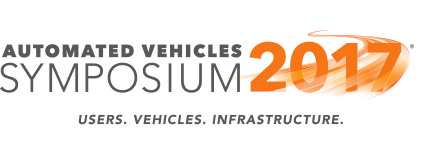Don't feed the radical right trolls by counter-protesting them
Submitted by brad on Wed, 2017-08-16 13:24We're all shocked at the idea of a growing neo-Nazi movement, at the horrible attack in Virginia and the lack of condemnation by the President. It's making us forget that the neo-Nazi radical right are trolls with many parallels to online trolls. And the only thing to do is not to feed the trolls, and definitely don't attack the civil rights that they make use of.
A protest march has 3 main functions:







 Level zero is just the existing rider on horseback.
Level zero is just the existing rider on horseback. Level one is the traditional horse drawn carriage or coach, as has been used for many years.
Level one is the traditional horse drawn carriage or coach, as has been used for many years. In a level 3 carriage, sometimes the horses will provide the power, but it is allowed to switch over entirely to the "motor," with the
horses stepping onto a platform or otherwise being raised to avoid working them. If the carriage approaches an area it can't handle, or the motor has problems,
the horses should be ready, with about 10-20 seconds notice, to step back on the ground and start pulling. In some systems the horse(s) can be in a hoist which can raise or lower them from the trail.
In a level 3 carriage, sometimes the horses will provide the power, but it is allowed to switch over entirely to the "motor," with the
horses stepping onto a platform or otherwise being raised to avoid working them. If the carriage approaches an area it can't handle, or the motor has problems,
the horses should be ready, with about 10-20 seconds notice, to step back on the ground and start pulling. In some systems the horse(s) can be in a hoist which can raise or lower them from the trail.
 There are several things notable about Waymo's pilot:
There are several things notable about Waymo's pilot: My thought is to combine foveal video with animated avatars for brief moments after
My thought is to combine foveal video with animated avatars for brief moments after  That, in turn, means Republic did not have the right to invoke the clauses of the contract for oversold flights. If so, they are just plain in the wrong, and this becomes a case with far less interesting nuance. United has changed their tune (of course due to public pressure) and are going full mea culpa.
That, in turn, means Republic did not have the right to invoke the clauses of the contract for oversold flights. If so, they are just plain in the wrong, and this becomes a case with far less interesting nuance. United has changed their tune (of course due to public pressure) and are going full mea culpa.
 The constitution says very little about districting. In fact, it doesn't even demand districts! States could have, if they chose, selected their representatives in a statewide proportional vote. Later federal laws, however, have demanded each person have one congress member, which demands geographic districts. About half the states require the districts be contiguous, but the others don't. The voting rights act and other principles have forbidden drawing the lines on racial or minority grounds, but not on the grounds of "this helps incumbents keep their seats" -- that's still largely within the rules.
The constitution says very little about districting. In fact, it doesn't even demand districts! States could have, if they chose, selected their representatives in a statewide proportional vote. Later federal laws, however, have demanded each person have one congress member, which demands geographic districts. About half the states require the districts be contiguous, but the others don't. The voting rights act and other principles have forbidden drawing the lines on racial or minority grounds, but not on the grounds of "this helps incumbents keep their seats" -- that's still largely within the rules.